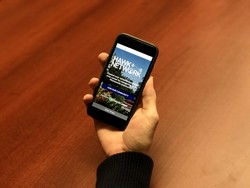Following Governor Murphy’s order for all schools to transition to remote learning, students and professors within the departments for arts and sciences, whose coursework requires laboratory projects, artwork, and performances have adapted to ensure that learning for their courses remains effective.
Mike Richison, an Assistant Professor of Arts and Design, explained some of his new methods towards teaching his Motion Graphics class, one of the many University offered art courses. Richison stated that along with uploading tutorial videos to provide instruction and demonstrate specific techniques, “I check and answer my email obsessively, and I host regular drop in Zoom sessions where students can come and go as they please to ask questions or show me their progress.”
For other art classes, the transition has been difficult due to their physical and hands-on course content. Sarabeth Nemetz, undeclared freshman student, described how her 3-D art class has changed as a result of the transition to online instruction, explaining that her class had to abandon a project they were previously working on due to the materials still being located on campus. “Instead of doing the projects we were doing before, now we’re working with cardboard and things we can do around the house,” Nemetz said.
Richison also commented on the need for compassion and understanding in this time of uncertainty. “I’m normally a stickler for technique,” he explained, “but I’ve had to provide a few different ‘roads’ to completion for one of my projects. I think this kind of flexibility is important during this time. It’s not just about a new format, it’s about what else is going on with a student and their family.”
Jeffrey Cook, a Lecturer of Music and Theatre Arts, confirmed concerns regarding music courses being an area of study that experienced uncertainty when transitioning online. “As it relates to online functionality, there are some courses that can’t and won’t translate in its truest state, such as ensembles,” Cook said, “… the very nature of teamwork and collaboration being the essential function in the performance of music is altered in such a way that it just can’t be replaced.”
Despite missing some of their core values, music courses will continue to be conducted online for the rest of the semester. Cook further explained that in the process of transitioning his classes to a virtual setting, he “… simply focused on the facts of what was important in terms of grading work and valuing the students’ time in this crazy predicament.” Some problems arose for classes, such as Chamber Orchestra students not having access to their instruments, as well as no longer being able to meet and perform as an ensemble.
Cook also noted that faculty in the applied music courses are doing their best to keep up with their students and maintain one-on-one instruction, a function that can not be replicated for an ensemble such as Chamber Orchestra. Gabriella Estrada, freshman music industry major, described how this private instruction process has resumed online, explaining that her lessons are now held over Zoom. “Having my lessons virtually can be very difficult when there is lag on the video or the sound becomes muffled,” Estrada said.
Many science courses also experienced difficulty when transitioning to online instruction and have seeked temporary solutions to finish the remainder of the semester. Julian Rebelo, freshman biology student, voiced his initial concerns about his science classes functioning online. “Science majors rely on a lot of in person communication, as well as labs, to understand and apply scientific concepts as a whole,” Rebelo said.
Danuta Szwajkajzer, Ph.D., a Lecturer of Chemistry and Physics, described the struggle to convert chemistry labs into a virtual format for students to complete remotely. “The chemistry labs in a virtual lab setting cannot replace the real ‘hands-on’ interaction with glassware and chemicals,” Szwajkajzer explained. “We cannot learn the lab skills at home. You need to touch glassware, use a balance and understand lab safety in a real lab setting.”



